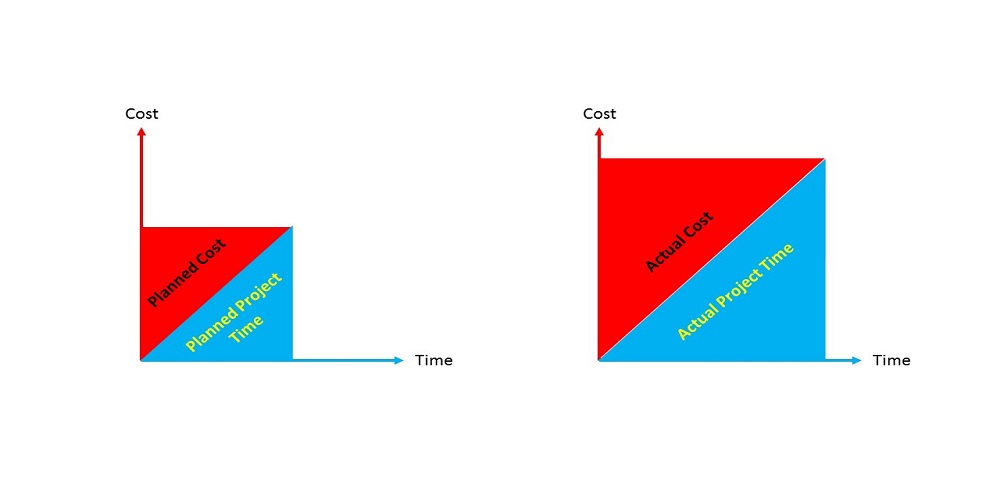Mastering ERP Project Management: Required Skills and Responsibilities of the Project Manager
Founder & CEO, Pulse 366 | Enabling AI for Business Leaders | Global Management Consultant | IPE, BUET | 07 April, 2024 (Sunday)View 863

In the dynamic landscape of modern business, successful ERP (Enterprise Resource Planning) implementation stands as a pivotal achievement. Yet, the journey towards ERP integration is riddled with complexities and challenges. This article explores the indispensable role of a strategic leader in navigating these waters, delineating the must-have skills, desirable competencies, and pivotal responsibilities requisite for seamless ERP integration.
Defining the Profile of an ERP Project Manager
Who Should Lead?
- The individual should be someone capable of developing new foundational skills.
- He or she must have the ability to work with all managers and navigate departmental silos.
- This person reports directly to the CEO.
Must-Have Skills
- Leadership abilities: Essential for steering teams toward unified goals.
- Trustworthiness: Building trust across all organizational levels fosters collaboration.
- Record of successful improvement projects: Demonstrates competence.
- Grasp of Business, People, Culture: Critical for holistic understanding.
- Effective communication: Ability to present complex ideas clearly.
- Conflict resolution and change management: Vital for navigating transitions.
- Technological fluency: Comfort with technology is essential.
Desirable Skills
- Experience of implementing any software package: Provides insight into implementation processes.
- Ability to dive into project details when necessary: Ensures thorough understanding.
- Viewing the organization as a set of business processes: Enhances strategic planning.
- Resilience and adaptability: Key for handling dynamic situations.
- Quick learner: Facilitates adaptation to new concepts.
- Extensive knowledge of department processes: Enables effective decision-making.
- Analytical thinking: Critical for problem-solving.
- Managing vendors and consultants: Ensures smooth collaboration and delivery.
Plus Skills
- Project management experience with the selected ERP package: Provides specialized expertise.
- Application consulting experience with the selected ERP package: Enhances understanding of system functionalities.
- Strong business analysis skills: Essential for aligning ERP with business needs.
- Project management certification: Demonstrates proficiency in project management.
Diving into Responsibilities: The Crucial Mandates of an ERP Project Manager
Scope Management and Budget Oversight
- Actively managing project scope to align with organizational objectives.
- Avoiding scope creep to maintain project focus.
- Risk assessment and mitigation strategies to address potential issues.
- Making budgets for each ERP implementation phase.
- Tracking all expenses with supporting documents.
Planning and Resource Allocation
- Determining project scope and timeline.
- Allocating resources and assigning responsibilities.
- Identifying all possible business scenarios and planning accordingly.
- Identifying all customization/configuration requirements and assigning resources.
- Defining hardware, network, application, and database requirements.
- Preparing training plans with required contents and schedules.
- Preparing system testing plans with test cases.
- Preparing data conversion and migration plans.
- Identifying and planning for all software development tasks as well as user requests.
Leadership and Oversight
- Leading both Business Analysts and software programmers.
- Coordinating and synchronizing Business Analysis and Software Development tasks.
- Creating weekly task lists for all teams in the ERP department.
- Following up on project progress and motivating the team.
- Managing external consultants and software vendors.
- Developing ERP implementation strategies.
- Maintaining documentation of process design and system design.
- Managing all applications and databases.
Self-Responsibilities
- Evaluating and deciding changes in ERP systems to meet organizational needs.
- Approving system blueprints, interface designs, and customization designs.
- Providing the best-fit technology solution for business needs.
- Training the team on software knowledge as well as business processes.
- Preparing Statements of Work (SOWs) for training from external consultants.
- Helping the team to collect business requirements through various methods.
- Working with functional managers to implement process improvements.
- Analyzing and evaluating information collected from multiple sources.
Reporting
- Working with the steering committee and top management to set responsibilities for system usage.
- Providing up-to-date project status reports to the steering committee and top management.
- Identifying and managing project-related issues/risks and notifying top management if required.
- Planning and conducting Executive Steering Team meetings.
Quality Assurance and Control
- Ensuring that the business requirements are met in the system and accepted by users.
- Ensuring that the project is delivered on time and within the budget.
- Ensuring that all functional departments understand their responsibilities and system functionality.
- Ensuring that the external consultant has delivered all requirements.
- Ensuring that training is received properly by the users.
- Ensuring that the system is well-tested.
- Ensuring that all hardware/software are in place and working together.
- Ensuring that all system connections are working and in proper synchronization.
- Ensuring that software licenses are up-to-date and working.
- Ensuring that all systems function as per expectation.
Monitoring
- Monitoring system performance and user performance.
- Taking improvement actions after project launch if necessary.
Conclusion
In the realm of ERP implementation, a strategic leader is indispensable. With the required skills, commitment to excellence, and a strategic vision, these leaders navigate complexities, heralding an era of organizational efficiency and innovation.











